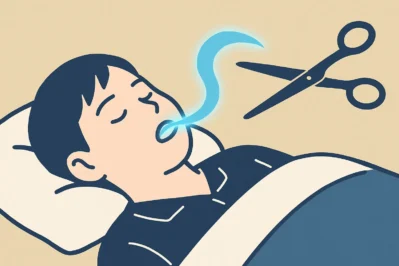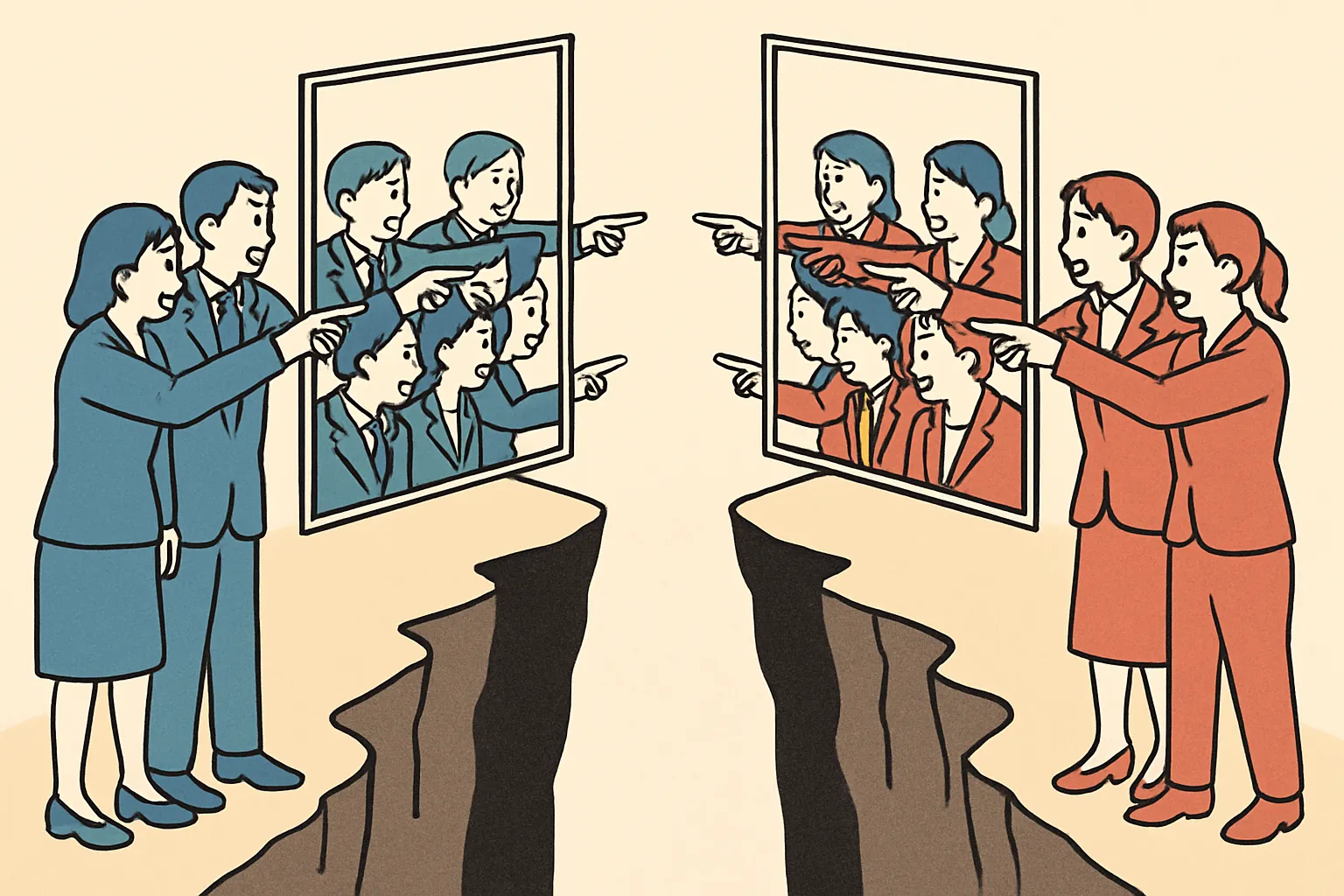The Silent Threat: Discussing Sleep Apnea in Korean
Hello! This is Maeil Hangul, here to upgrade your Korean skills to the next level!
Today, we’re moving beyond casual conversation and into a topic that requires more specialized vocabulary: health. Specifically, we’ll be discussing sleep apnea, a common but serious condition. Why this topic? In Korea, there’s a growing awareness of “well-being” (웰빙) and “quality of life” (삶의 질). As you engage in more profound conversations, being able to discuss health issues with precision is a key C1-level skill, whether you’re at a hospital or expressing concern for a friend. Let’s learn how to talk about this “silent threat” like a pro.
Core Expressions You Need to Know
Here are the essential terms and grammar points for discussing sleep apnea and its risks.
1. 수면무호흡증 (Sumyeon-muhoheup-jeung)
* Pronunciation: [su-myeon-mu-ho-heup-jeung]
* English Meaning: Sleep Apnea
* Detailed Explanation: This is a medical term composed of Hanja (Sino-Korean characters). Let’s break it down: 수면 (睡眠) means ‘sleep’, 무 (無) means ‘without’, 호흡 (呼吸) means ‘breathing’, and 증 (症) means ‘syndrome’ or ‘disorder’. Understanding these components makes the word easy to remember. It’s the formal, correct term you would use in a clinical setting or a serious discussion.
2. -(으)로 인해 (-(eu)ro inhae)
* Pronunciation: [-(eu)-ro in-hae]
* English Meaning: Due to / As a result of
* Detailed Explanation: This grammar pattern is a formal way to state cause and effect, making it perfect for professional or academic contexts like discussing medical conditions. It’s a step up from the more common -때문에. You attach -로 인해 to nouns ending in a vowel or ‘ㄹ’, and -으로 인해 to nouns ending in other consonants.
* Example: 과도한 스트레스로 인해 불면증이 생겼습니다. (Due to excessive stress, I developed insomnia.)
3. 합병증을 유발하다 (Hapbyeong-jeung-eul yubalhada)
* Pronunciation: [hap-byeong-jeung-eul yu-bal-ha-da]
* English Meaning: To cause/trigger complications
* Detailed Explanation: This is a crucial set phrase for discussing the risks of a medical condition. 합병증 (合幷症) means ‘medical complications’, and 유발하다 means ‘to induce’ or ‘trigger’. Using this phrase demonstrates a high command of formal Korean and is essential when discussing the potential consequences of ignoring a health issue.
4. 삶의 질이 저하되다 (Salm-ui jir-i jeohwa-doeda)
* Pronunciation: [sal-mui jil-i jeo-hwa-dwe-da]
* English Meaning: One’s quality of life deteriorates/declines
* Detailed Explanation: This expression powerfully captures the overall impact of a chronic condition. 삶의 질 (salm-ui jil) is the direct translation of ‘quality of life’. 저하되다 is a verb meaning ‘to fall, decline, or deteriorate’. This phrase is frequently used in news reports, health documentaries, and serious discussions about well-being.
Example Dialogue
Let’s see how these expressions work in a realistic conversation between two concerned colleagues.
- A: 지훈 씨, 안색이 안 좋네요. 요즘 계속 피곤해 보여요.
- (Jihun, you don’t look well. You’ve seemed tired continuously these days.)
- B: 네, 부장님. 잠을 충분히 자도 피로가 안 풀려요. 아내가 제가 잘 때 코를 심하게 골다가 가끔 숨을 멈춘다고 하더라고요.
- (Yes, manager. Even when I get enough sleep, the fatigue doesn’t go away. My wife told me that I snore loudly and sometimes stop breathing in my sleep.)
- A: 그거 혹시 **수면무호흡증 아니에요? 방치하면 고혈압 같은 심각한 합병증을 유발할 수 있다고 들었어요.**
- (Could that be sleep apnea? I heard that if left untreated, it can cause serious complications like high blood pressure.)
- B: 정말입니까? 어쩐지 요즘 집중도 잘 안되고… **수면무호흡증으로 인해 전반적인 삶의 질이 저하된 것 같습니다. 당장 병원 예약을 해야겠네요.**
- (Really? No wonder I haven’t been able to concentrate well lately… It seems my overall quality of life has deteriorated due to sleep apnea. I need to book a hospital appointment right away.)
Culture Tip & Trend Deep Dive
In Korea’s fast-paced, high-pressure society, sleep is often sacrificed for work or study. However, there’s a growing counter-movement focusing on health and well-being.
- The Rise of “Sleep-Tech” (슬립테크): The concern over sleep quality has created a booming market in Korea for “sleep-tech,” including smart beds that monitor sleep patterns, specialized pillows, and relaxation apps. This shows that discussing sleep is a very relevant and modern topic.
- Sounding Like an Expert: Using precise medical terms like 수면무호흡증 and formal connectors like -(으)로 인해 during a serious conversation about health shows that you are not just a casual learner but a proficient speaker capable of handling complex subjects. It conveys both intelligence and genuine concern, elevating the quality of your interaction.
Wrap-up & Practice
Today, we learned how to discuss the serious topic of sleep apnea with advanced vocabulary and grammar. We covered:
* 수면무호흡증 (Sleep Apnea)
* -(으)로 인해 (Due to)
* 합병증을 유발하다 (To cause complications)
* 삶의 질이 저하되다 (Quality of life deteriorates)
Now, it’s your turn to practice!
- Fill in the Blank:
- 장기간의 수면 부족은 집중력 저하를 ______ 수 있습니다.
- (Long-term sleep deprivation can _______ a decline in concentration.)
- Sentence Building:
- Using
-(으)로 인해and삶의 질이 저하되다, write a sentence explaining how a different health problem (e.g., chronic pain 만성 통증) can affect someone’s life.
- Using
Try using one of today’s expressions to write a sentence in the comments below. Great job today, and see you next time at Maeil Hangul






